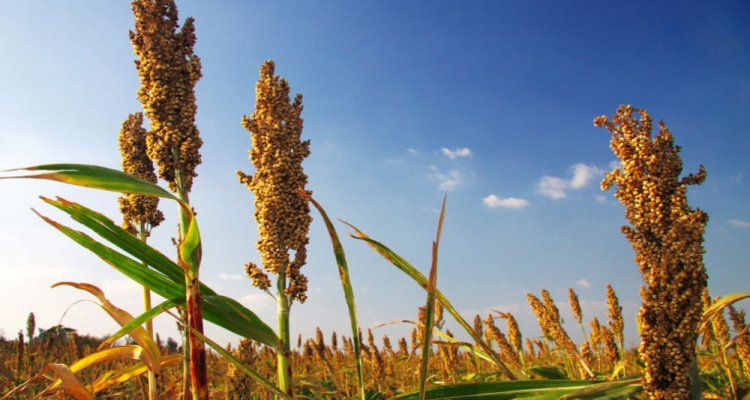
Project
NUTRIFOODS: An African-European partnership to develop climate resilient bread products
How can we increase the use of climate resilient African food crops like sorghum and cow peas to make tasty and healthy bread products and strengthen local economies?
Background
In Africa, rural communities traditionally prepare meals from locally grown crops like cassava, sorghum and pulses. However, with fast population growth, massive urbanization and increasing disposable incomes, consumption of refined wheat breads is increasing rapidly and displacing traditional meals. A major economic and food security problem resulting from this transition is that Africa now imports nearly 60% of its wheat requirements, with for example Kenya, and Uganda importing some 68% and 95% respectively of their domestic needs. It is critical that Africa reduces its importation of wheat and replaces it with flours from locally grown crops. This is needed to improve food and nutrition security, provide markets and regular income to smallholder farmers and create new business opportunities along the crop value chain. Furthermore, the transition to producing Climate Resilient Crops (CRC) is crucial in face of the climate changes predicted for the shorter and longer future. European baking industry desires functional, nutritious flour from sustainable crops to replace wheat in baked products due to the growing demand for gluten-free products, and hence be a market for African crops.
Climate Resilient Crops
Crops are considered to be climate resilient when they are better able to withstand the climate change affecting weather patterns, like higher temperatures and more frequent and severe droughts in Africa. CRCs with such properties can be classified as cereals (e.g. maize, sorghum, fonio, teff and finger millet), pseudocereals (amaranth), roots and tubers (cassava and sweet potato), pulses (phaseolus beans, cowpeas, chickpeas, pigeon peas and bambara groundnuts) and oilseed legumes (soya beans and peanuts). All these crops are widely grown across sub Saharan Africa. However, CRCs are underutilized and undervalued, primarily for technical reasons, but also lack attention in research, development and commercialization throughout their value chains. NUTRIFOODS seeks solutions on how to increase the use of CRCs in baked products to provide nutritionally-rich food products that meet consumer needs and favours local economies.
Consumer and market research
In view of the market-driven approach, NUTRIFOODS started by identifying the consumer needs for attractive CRC-based products and key limitations in the CSC supply and market chain. A Rapid Market Appraisal (RMA) methodology was developed as an effective instrument for African SMEs to perform small scale market research to identify market opportunities for new products, market barriers and possibilities to enhance productivity tuned to regional contexts.
Improving CRC functionality
Various processing technologies are applied to improve the functionality of sorghum and cowpea.
Treatments like fermentation, extrusion, roasting and malting are employed to improve chemical and physical parameters (starch pasting properties, protein denaturation and gelling, hydration and rheological properties) related to the techno-functionality of the flours, and improve their functionality to produce high quality breads. The treatments are also used to improve the sensory properties of the breads in terms of flavour and texture.
Product development and commercialization
Together with our industrial partners we aim to develop ingredients and bread products for African as well as European markets, and ensure the results of our research are applied and lead to economic development.